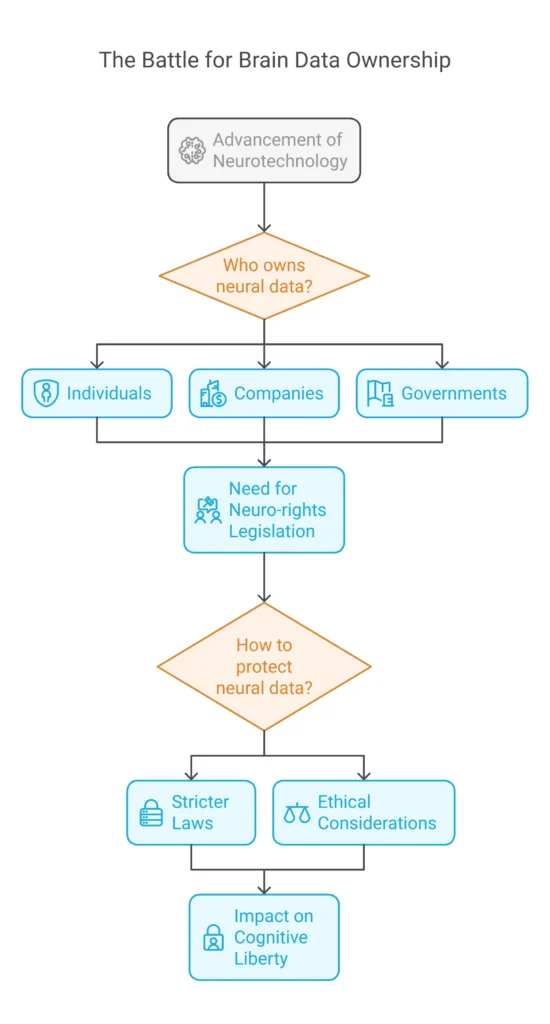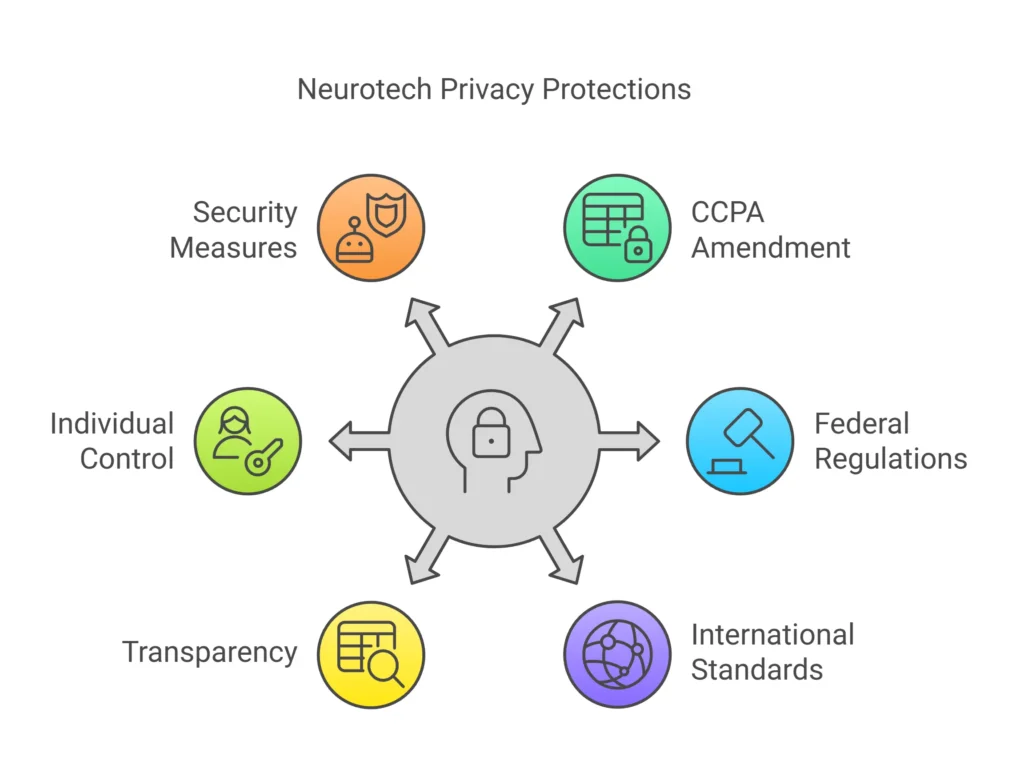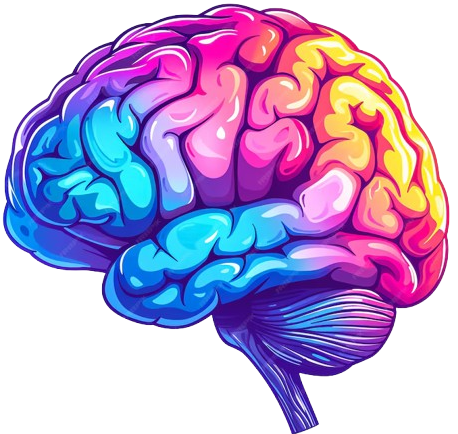Neuralink’s brain-computer interface technology is advancing fast. This raises big concerns about our mental privacy and who owns our brain data. The CCPA brain data amendment tries to regulate neural data use. But, it also makes us wonder who really controls this sensitive information.

With Neuralink and other companies collecting our brain data, our privacy is at risk. As brain-computer interfaces become more common, we need strong privacy laws. The CCPA brain data amendment is a good start. But, we must do more to protect our brain activity and ensure we control our own data.
Key Takeaways
- Neuralink’s brain-computer interface technology raises concerns about neuro-rights violations
- The CCPA brain data amendment regulates the collection and use of neural data
- Mental privacy at risk is a growing concern with the use of brain-computer interfaces
- Corporations may be able to patent thoughts, highlighting ownership ambiguity in neural data
- Clear regulations and protections are needed to safeguard individual privacy
- The CCPA brain data amendment is a step towards protecting mental privacy at risk
- Individuals need to have control over their own brain activity and neural data
Understanding Neuralink’s Neural Data Collection System
Neuralink, founded by Elon Musk, leads in brain-computer interface tech. It faces a big challenge balancing medical and business aims. The fear of hackable brains is a major worry, and Neuralink must protect users’ brain data.
The system is made to record brain activity and gather neural data. This data helps in finding new treatments and improving lives of those with paralysis and depression. But, as Neuralink moves from medical tool to profit engine, it must be clear about how it collects and stores data.
Some key parts of Neuralink’s system include:
- High-bandwidth brain-machine interfaces
- Advanced neural signal processing
- Secure data storage and transmission
As Neuralink grows, it must tackle the hackable brains issue. It needs to keep users’ brain data safe. By focusing on security and openness, Neuralink can gain trust and lead in neurotech.
The Battle for Brain Data Ownership
The fight over who owns and can access neural data is heating up. Cognitive liberty wars aim to protect our right to our brain’s activity. With neurotechnology getting better, the push for neuro-rights legislation is growing. Many want laws to keep our brain data safe.

Studies show that neuro-rights legislation is just starting. Many countries are trying to keep up with new tech fast. But, experts say we need stricter laws to protect our cognitive liberty.
Some big questions in the cognitive liberty wars are:
- Who should get to see our neural data: us, companies, or governments?
- How should we store and protect our neural data?
- What does neuro-rights legislation mean for our freedom and choices?
The fight for brain data ownership is critical. We must think about how neuro-rights legislation affects us and society. By focusing on cognitive liberty, we can make sure neurotechnology benefits us without harming us.
Legal Framework and Privacy Protections in Neurotech
Brain-computer interfaces are becoming more common, and protecting neural data is key. The CCPA brain data amendment in California is a big step. It sets rules for how neural data is collected and used in the state. This is part of a bigger effort to create federal regulations on neural data rights across the country.

Worldwide, international standards for brain-computer interfaces are being made. They aim to make sure these technologies are used safely and with respect for people’s rights. These standards will help stop the misuse of neural data and give people control over their brain activity. Some important parts of these standards are:
- Transparency in data collection and use
- Individual control over neural data
- Security measures to protect neural data
As neurotech grows, protecting neural data is vital. We need strong laws and standards. This way, we can enjoy the benefits of brain-computer interfaces while keeping people’s privacy and freedom safe.
Conclusion – Safeguarding Your Neural Privacy in the Age of Brain-Computer Interfaces
Neuralink technology is changing how we interact with computers using our brains. This makes protecting our neural privacy more important than ever. We must guard our brain activity and keep our personal data safe.
Neuralink and other brain-computer interfaces bring new possibilities. But they also raise big questions about our neural data’s ownership and security. We need to make sure our thoughts and feelings stay our own.
Knowing about privacy laws and neuro-rights is key. This knowledge helps us protect our neural data. By being active in shaping brain-computer tech, we can balance innovation with our right to mental privacy.
